In 2025, healthcare systems are undergoing rapid digital transformation, and choosing the right cloud provider has become a strategic priority.
However, with platforms like AWS, Azure, and GCP all claiming robust security, compliance, and innovation, how can decision-makers determine which one truly meets the needs of modern healthcare?
A staggering 71% of healthcare organizations using the cloud experienced security incidents last year (HIPAA Journal, 2024). Choosing the right 2025 cloud provider is a matter of patient trust and regulatory survival.
As cloud vendors improve their services to offer stronger privacy controls, better performance, and improved interoperability, the pressure on healthcare providers increases.
The real challenge lies in choosing a cloud solution that aligns with regulatory demands, clinical needs, and long-term digital growth.
In this blog, we will explore AWS vs. Azure vs. Google Cloud through a healthcare lens, comparing security, compliance, pricing, tools, and overall fit for cloud migration in 2025.
So let’s get hooked with the understanding of these top three leading cloud platforms!
An Overview of Leading Cloud Platforms in Healthcare
Healthcare organizations depend on cloud platforms to deliver fast, secure, and scalable solutions that support clinical workflows, electronic health records (EHRs), compliance, and more.
Table of Contents
Therefore, understanding what each major cloud provider offers is the first step toward making an informed choice.
Let’s walk through the core strengths of AWS, Microsoft Azure, and Google Cloud to see how they align with healthcare demands.
What Is AWS in Healthcare Cloud Computing?
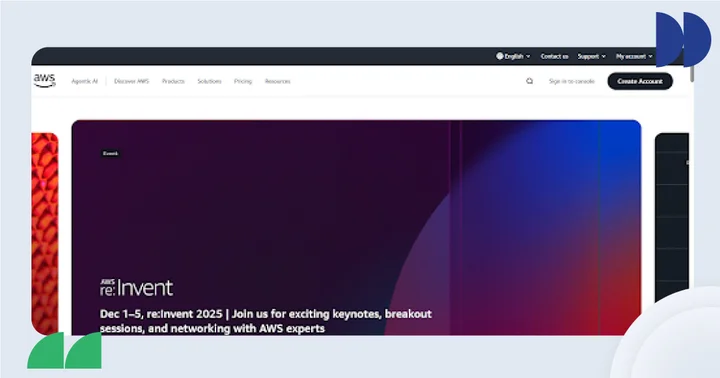
Amazon Web Services (AWS) is one of the most widely adopted and trusted cloud platforms across industries. With a long-standing focus on compliance, scalability, and innovation, AWS has become a go-to solution for hospitals, clinics, research institutions, and digital health startups alike.
When it comes to healthcare, AWS offers the foundation for safely and efficiently launching mobile health apps and managing extensive clinical systems.
In addition, its global infrastructure, advanced data services, and powerful machine learning capabilities make it especially effective for supporting the complex demands of modern healthcare environments.
The following features set AWS apart in this space:
- HIPAA-eligible Services: AWS offers 130+ services under its Business Associate Addendum (BAA), helping organizations meet HIPAA compliance for storing, processing, and transmitting protected health information (PHI).
- Amazon HealthLake: A specialized service designed to organize and normalize healthcare data into the HL7 FHIR format, enabling faster analytics, interoperability, and insights.
- Scalability and Flexibility: Easily accommodates everything from real-time telemedicine to nationwide health record systems without compromising on performance.
- AI and Machine Learning: Tools like Amazon Comprehend Medical and SageMaker allow organizations to automate workflows, detect anomalies, and extract insights from unstructured clinical data.
- Global Reach and Security: AWS operates in multiple availability zones and regions, providing secure, redundant infrastructure that supports disaster recovery and data residency needs.
What is Microsoft Azure in Healthcare Cloud Computing?
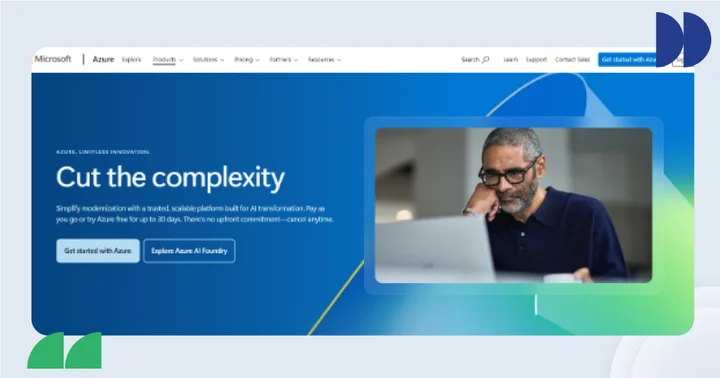
Microsoft Azure has positioned itself as a strong contender among healthcare cloud service providers, offering an ecosystem that emphasizes compliance, interoperability, and enterprise-grade tools.
Moreover, for healthcare organizations already using Microsoft products like Office 365 or Dynamics, Azure provides seamless integration and consistent data governance.
Here’s why healthcare systems choose Azure:
- Microsoft Cloud for Healthcare: A tailored solution that bundles services specifically for healthcare operations, offering enhanced patient engagement, clinical data insights, and operational analytics.
- HIPAA Compliance and HITRUST Certification: Azure supports over 90 compliance offerings, including HIPAA, HITRUST, and ISO/IEC 27001, ensuring patient data is managed securely and ethically.
- FHIR Server for Azure: Facilitates the secure exchange of clinical data using HL7 FHIR standards, making it easier to build interoperable applications and EHR integrations.
- AI & Cognitive Services: Tools like Azure Health Bot and Azure Machine Learning enable predictive analytics, virtual health assistants, and faster diagnostics.
- Hybrid Cloud Support: Azure’s hybrid capabilities allow hospitals to maintain certain workloads on-premises while gradually transitioning to the cloud, which is ideal for organizations with legacy systems.
If your healthcare infrastructure depends on Microsoft technologies and requires seamless integration, Azure provides a mature and reliable platform to scale securely.
What is Google Cloud Platform (GCP) in Healthcare Cloud Computing?
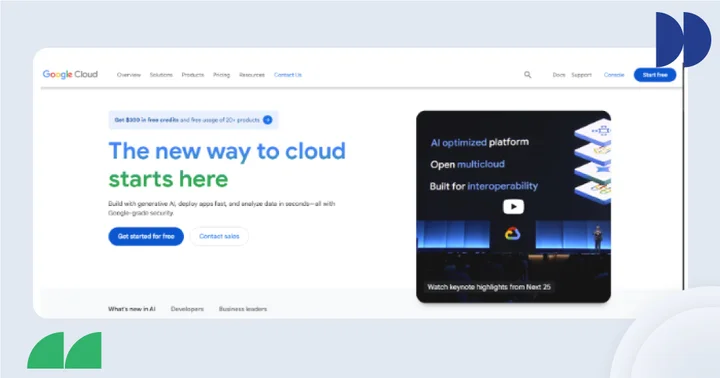
Google Cloud Platform (GCP) is recognized for its leadership in data analytics, AI, and open-source technologies, and it’s increasingly carving out space in the healthcare sector.
Moreover, GCP is well-suited for organizations that focus on real-time insights, machine learning, and population health management at scale.
As many providers continue their journey toward cloud migration, GCP offers a flexible foundation to support modern healthcare infrastructure and data-driven care delivery.
Let’s look at GCP’s key healthcare advantages:
- Google Cloud for Healthcare: A comprehensive suite that helps health providers, insurers, and researchers ingest, store, and analyze data while maintaining HIPAA and HL7/FHIR compliance.
- AI & Big Data Strength: Tools like BigQuery and AutoML empower healthcare teams to process large datasets, run predictive models, and personalize care strategies.
- FHIR API & Cloud Healthcare API: These APIs make it easier to ingest and structure clinical data, enabling interoperability between disparate systems and smoother data exchange.
- Security and Privacy Controls: GCP offers encryption by default, access transparency logs, and context-aware access, all critical for sensitive healthcare workloads.
- Sustainability & Innovation: Google’s carbon-neutral infrastructure and investment in AI research appeal to forward-thinking healthcare institutions focused on long-term impact.
GCP is often favored by data-driven healthcare organizations. Particularly those focused on research, advanced analytics, and scaling digital health solutions globally.
Can’t Decide Between AWS, Azure, Or GCP For Your Healthcare System? Choose the right platform with expert guidance customized to your needs.
Comparing AWS, Azure, and GCP: What Sets Them Apart for Healthcare?
When it comes to cloud adoption in healthcare, not all platforms are created equal. AWS, Microsoft Azure, and Google Cloud Platform (GCP) all provide secure and scalable environments.
Each brings distinct strengths and architectural priorities that can influence an organization’s digital transformation journey.
In fact, the differences go well beyond pricing, touching on AI capabilities, data governance, regulatory alignment, and services specifically designed for the evolving needs of healthtech development.
- AWS is known for its broad service portfolio and long-standing presence in the cloud market.
- Azure offers strong integration with Microsoft-based ecosystems, including tools like Dynamics 365 and Teams.
- GCP, meanwhile, leads in healthcare-oriented AI and analytics, particularly through its Google Health initiatives and developer-friendly APIs.
Ultimately, understanding these platform-specific differences is essential for healthcare organizations planning cloud migration in 2025.
In the following table, we provide a comprehensive comparison of healthcare cloud providers such as AWS vs. Microsoft Azure vs. Google Cloud Platform (GCP) across essential healthcare pillars such as security, compliance, interoperability, and cost-effectiveness.
| Criteria | AWS (Amazon Web Services) | Microsoft Azure | Google Cloud Platform (GCP) |
|---|---|---|---|
| Security Architecture | Tools like Amazon Macie, GuardDuty, and Shield for proactive threat detection. | Microsoft Defender for Cloud with robust identity & access control. | Built-in Zero Trust model with Chronicle and BeyondCorp. |
| HIPAA Compliance | Extensive HIPAA-eligible services across all major cloud components. | Full HIPAA support with Business Associate Agreements (BAA). | HIPAA-ready services focused on secure, AI-driven PHI handling. |
| Interoperability | FHIR support via Amazon HealthLake and APIs for clinical data exchange. | Azure API for FHIR and Microsoft Cloud for Healthcare integration. | Supports HL7, FHIR, and DICOM through Google Cloud Healthcare API. |
| AI & ML in Healthcare | Amazon Comprehend Medical and HealthLake for clinical insights. | Azure Health Bot and Azure ML for predictive health analytics. | Vertex AI, DeepMind, and AutoML for medical research and diagnostics. |
| EHR/EMR Integration | Integrates with Epic, Cerner via AWS Partner Network and HealthLake. | Connectors for Epic, Cerner via Azure Logic Apps, and Microsoft Health solutions. | Robust EHR/EMR integration via FHIR-enabled APIs and connectors. |
| Cloud Migration Tools | AWS Migration Hub, DMS, and Application Discovery Service for phased migrations. | Azure Migrate with hybrid healthcare workload support. | Migrate for Compute Engine, Transfer Appliance tailored to health orgs. |
| Cloud Migration Tools | Strong partnerships with Cerner, GE Healthcare, Philips, and others. | Deep integration with Teams, Dynamics 365, and Power Platform for clinical workflows. | Partnerships include Fitbit, Google Health, and advanced medical imaging tools. |
| Global Reach & Uptime | 100+ Availability Zones worldwide; reliable SLA-backed uptime. | Broadest global presence with strong hybrid cloud capabilities. | Expanding global presence, especially in research-focused markets. |
| Pricing & Cost Efficiency | Pay-as-you-go + volume discounts + AWS Savings Plans for compute-heavy loads. | Flexible pricing with hybrid benefits and reserved instances. | Sustained use discounts and strong value for analytics and AI-intensive workloads. |
How to Choose the Best Cloud Platform for a Healthcare Organization?
Your healthcare organization’s future may be influenced by the strategic choice you make when selecting a cloud platform. Your choice must support current needs as well as future expansion across operational agility and regulatory alignment.
AWS, Azure, and GCP each offer strong capabilities, but not all will align with your infrastructure, compliance requirements, or digital health strategy. Your best option depends on a clear understanding of your needs.
To make an informed decision, here are the key criteria to evaluate:
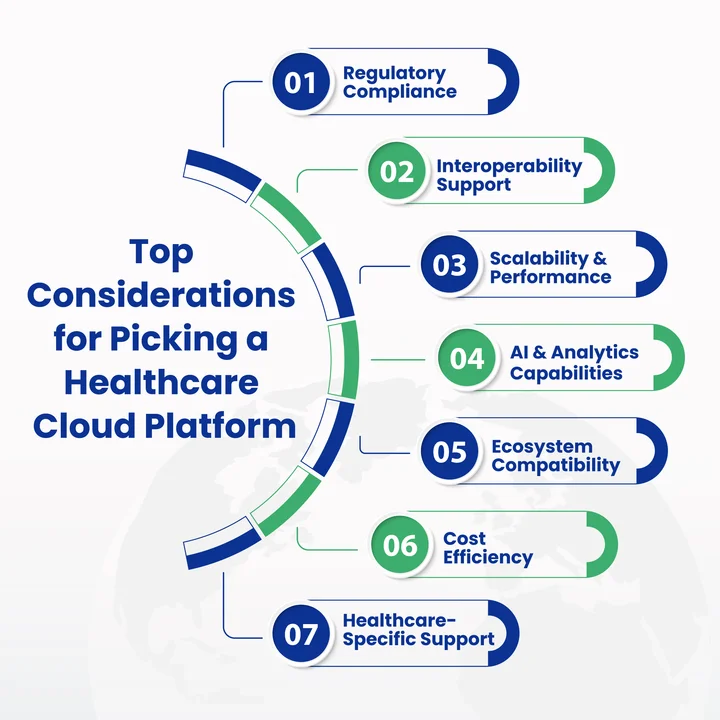
1. Compliance and Regulatory Support
Healthcare providers must meet strict data protection standards such as HIPAA, HITECH, GDPR, and sometimes even region-specific rules. That’s why your healthcare cloud provider must offer HIPAA-eligible services, strong encryption policies, and the ability to sign a Business Associate Agreement (BAA).
Look for platforms with compliance certifications like HITRUST, ISO 27001, and SOC 2. Native tools for access control, encryption at rest and in transit, and detailed audit logs are non-negotiables for handling protected health information (PHI) securely.
2. Interoperability and Standards-Based Integration
Modern healthcare systems rely heavily on seamless data exchange between EHRs, labs, imaging centers, mobile health apps, and even wearables. Without strong interoperability, patient care becomes fragmented.
Cloud platforms that support standards like HL7, FHIR, and DICOM can simplify integration. The presence of well-documented APIs, native FHIR servers, and data normalization tools is critical for connecting disparate systems and enabling real-time care coordination.
3. Scalability and Global Infrastructure
If you’re expanding clinics, onboarding more patients, or scaling digital services like telemedicine, your cloud infrastructure must scale with you. The right provider should offer high availability, global data centers, and on-demand resource provisioning.
Scalability is about maintaining performance under pressure. Look for platforms that offer auto-scaling, load balancing, and disaster recovery options to keep systems running smoothly as you grow.
4. Innovation Capabilities (AI & ML)
Healthcare innovation is increasingly driven by AI and machine learning. Your cloud provider should support that journey with healthcare-specific ML tools.
Services like AWS Comprehend Medical, Azure Health Bot, and GCP’s Vertex AI enable real-time insights from clinical data. Choosing a platform with ready-to-use models, training pipelines, and big data support will accelerate your innovation goals.
5. Fit with Existing Ecosystem
Your cloud platform should align with your current tech environment. If your teams rely heavily on Microsoft products (like Teams, Dynamics, or Office 365), Azure will offer the most seamless integration.
Meanwhile, AWS might be more suitable for organizations already using its infrastructure or looking for a wide range of third-party integrations. GCP is often favored by data-driven organizations that prioritize open-source tools and advanced analytics.
6. Cost Management and Flexibility
Healthcare budgets are tight, and infrastructure costs can spiral if not managed carefully. That’s why you need a provider that offers flexible pricing models and built-in cost management tools.
Compare pricing tiers, support for reserved or spot instances, and native dashboards for tracking usage. Providers that offer real-time billing alerts, budget recommendations, and resource optimization features can help you stay in control of your spending.
7. Support and Healthcare-Specific Partnerships
Cloud implementation is rarely plug-and-play. The right provider should offer strong technical support, onboarding resources, and a proven track record with healthcare clients.
Partnerships with EHR vendors (like Epic or Cerner), medical imaging providers, and digital health startups can accelerate integration and reduce risk. Make sure your cloud partner understands the nuances of healthcare operations and is ready to guide you through complex deployments.
Confused About Which Cloud Platform Fits Healthcare Best? Talk to our Cloud Consultant to compare AWS, Azure, and GCP from a compliance, performance, and cost perspective.
Now, let’s discuss some of their benefits in a healthcare organization.
What Are the Key Benefits of AWS, Azure, and GCP for Healthcare Organizations?
Cloud computing has become the backbone of modern healthcare infrastructure. As providers strive to deliver better care, ensure compliance, and drive digital transformation, platforms like AWS, Microsoft Azure, and Google Cloud Platform (GCP) offer critical advantages.
Each brings unique capabilities. It helps healthcare organizations improve clinical outcomes, streamline operations, and scale efficiently.
To better understand how each platform supports healthcare goals, here’s a side-by-side breakdown of key benefits across AWS, Azure, and GCP:
| Benefit | AWS | Azure | GCP |
|---|---|---|---|
| Better Patient Outcomes | Real-time data insights help doctors make faster decisions. | Clinicians collaborate easily with integrated Microsoft tools. | AI models assist in early diagnosis and personalized care. |
| Faster Innovation | Scalable tools let teams build and test new solutions quickly. | Developers launch new health apps using familiar platforms. | Open tools speed up research and healthcare innovation. |
| Stronger Data Protection | HIPAA-ready services secure patient data end-to-end. | Built-in compliance controls support safe data handling. | Default encryption and a privacy-first design ensure safety. |
| Easier System Management | Managed services reduce IT burden and manual effort. | Hybrid options simplify the transition from old systems. | Automation reduces day-to-day maintenance. |
| Flexible Growth | Scales easily for growing data, users, or locations. | Supports expansion across facilities and services. | Handles large workloads without added infrastructure. |
Key Takeaways
What will define the healthcare leaders of tomorrow, better tools or better decisions?
The real competitive edge lies not just in adopting cloud services but in aligning them with long-term care strategies, compliance needs, and operational goals. Cloud platforms are enablers of patient-centered innovation.
Selecting the appropriate cloud foundation is essential if you’re integrating AI into clinical workflows, scaling secure data systems, or rethinking infrastructure.
That’s why investing in purpose-built cloud engineering solutions is a strategic leap toward more responsive, intelligent, and resilient healthcare delivery.
Frequently Asked Questions (FAQs)
2. How Do You Choose Between AWS, Azure, and GCP for Healthcare?
Start by evaluating your organization’s core needs.
- AWS offers broad healthcare service options and mature compliance tools.
- Azure is ideal if you're already using Microsoft tools and need hybrid capabilities.
- GCP stands out for advanced AI and data analytics. Consider factors like budget, integration needs, regulatory support, and scalability.
3. Which Cloud Providers Are HIPAA Compliant in 2025?
All three (AWS, Azure, and GCP) provide HIPAA-eligible services and enterprise-grade security.
However, their approaches differ:
AWS offers granular encryption tools, Azure provides robust access management via Active Directory, and GCP’s default zero-trust model is built for data privacy. Choosing the right one depends on your setup and how well each aligns with your internal policies.
4. Which Cloud Platform Offers The Most Secure Infrastructure For Healthcare (Aws, Azure, Or Gcp)?
All three providers offer enterprise-grade security, but the choice depends on your setup. AWS has extensive encryption and access control features. Azure provides strong identity and access management via Active Directory. GCP is built on a zero-trust security model with default encryption.
Is Your Current Cloud Setup Slowing Down Your Innovation? We’ll help you optimize it for performance, compliance, and growth.




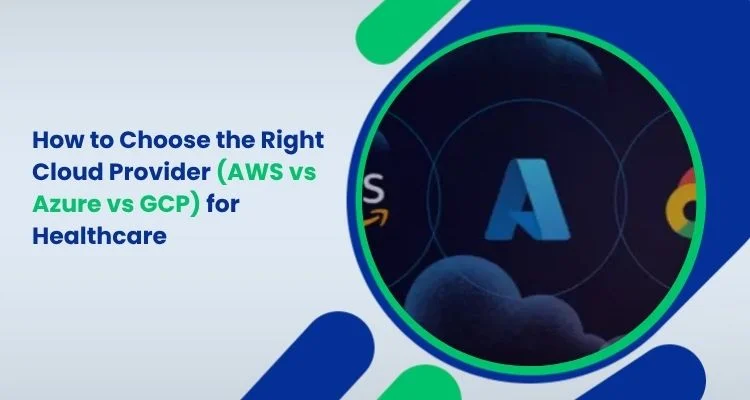
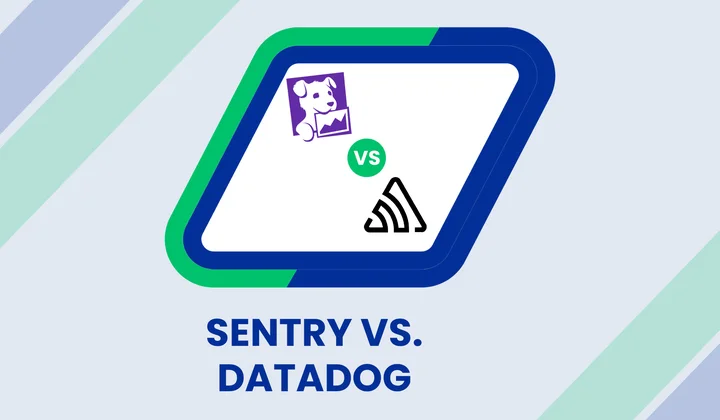


Share your thoughts about this blog!